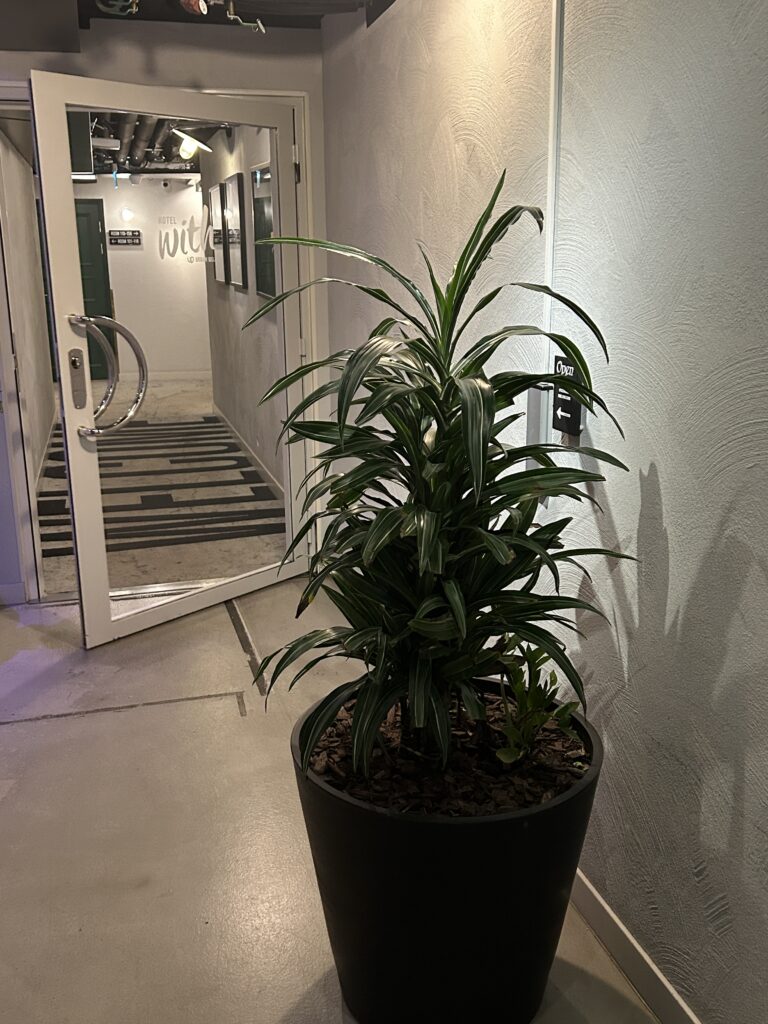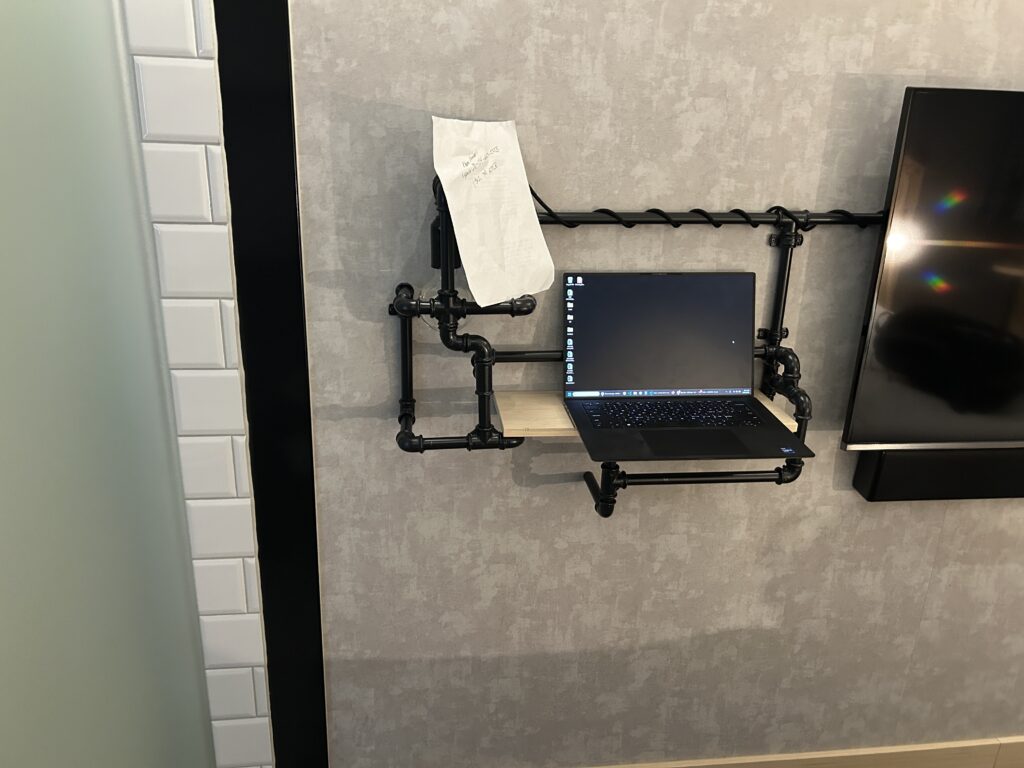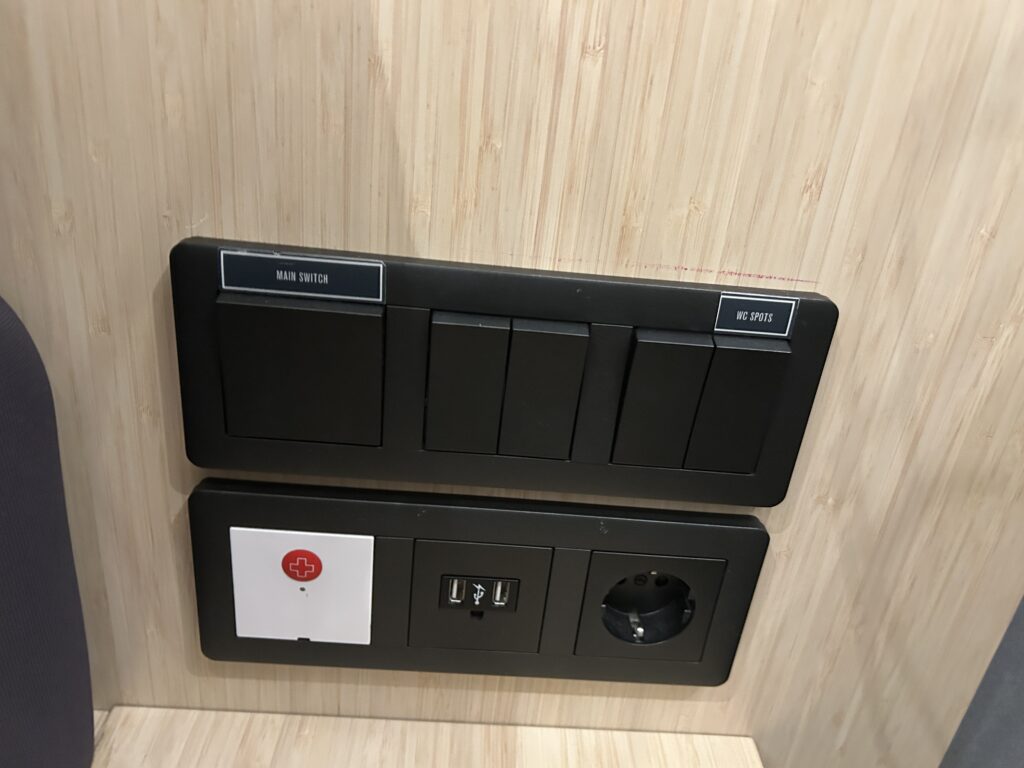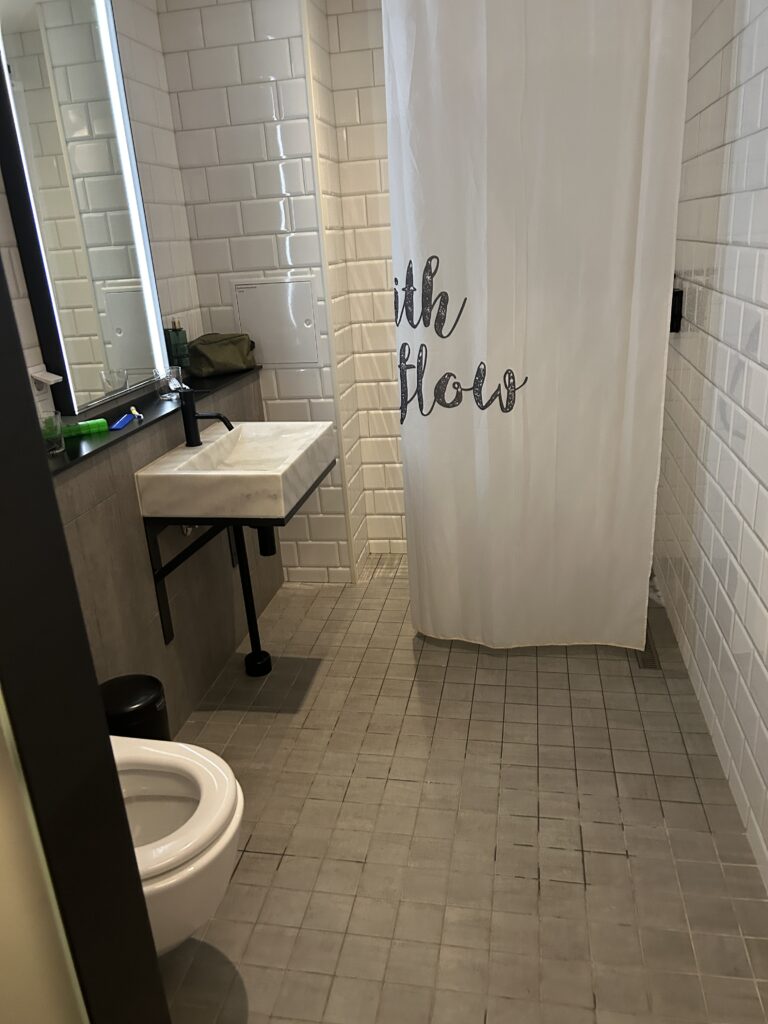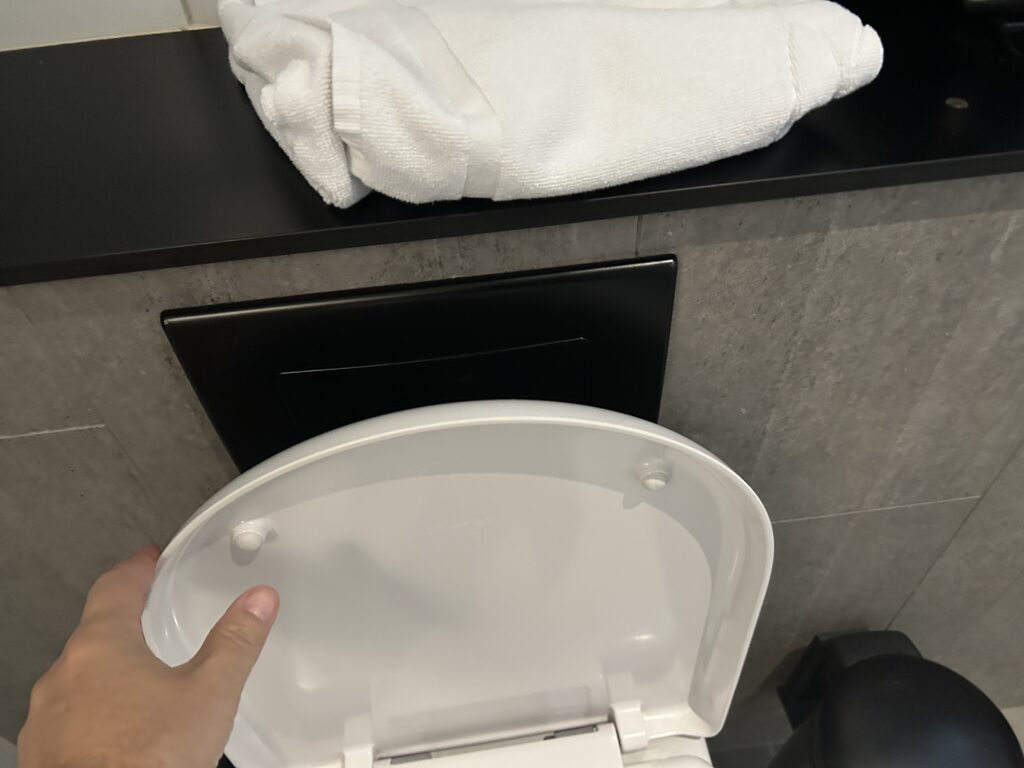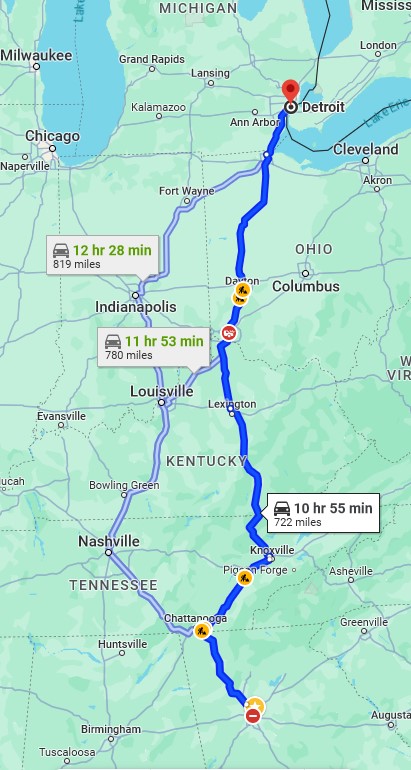Urban Deli in Stockholm, Sweden, is the worst hotel I’ve ever encountered. (I’m excluding discount motels and last second we-have-a-coupon-somewhere hotels. This is a “regular” hotel, right in the city center.)
First the good: Urban Deli has good ratings (4.5 on Trip.com and Google, 4.3 on Trip Advisor). And credit where credit’s due: the staff were professional and helpful, everything was clean. The operations ran without a hitch. My issue isn’t with the people or the upkeep. It’s the design of the rooms and the hotel itself that was so bad.
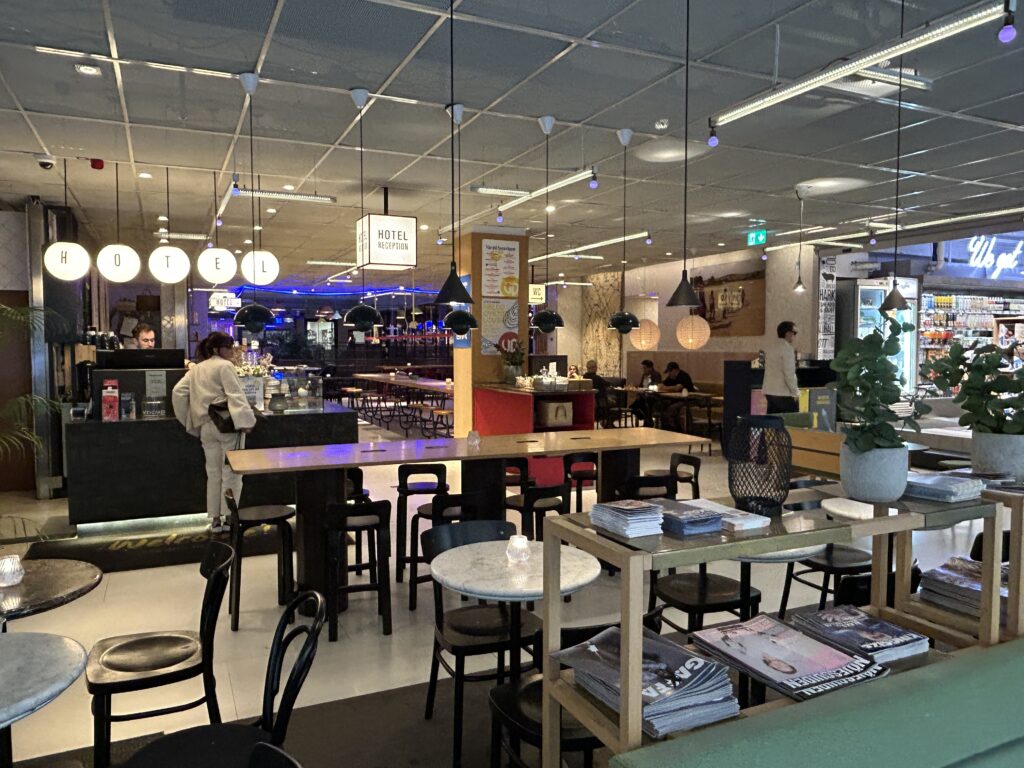
Let’s start at the beginning. The hotel name is not Urban Deli. Urban Deli is a chain of delis in city centers. The hotel is called “Hotel Urban Deli”, or the Hotel at Urban Deli, or similar. It’s a distinction that is lost on me. Why pair a hotel with a deli — who wants to live in a deli?
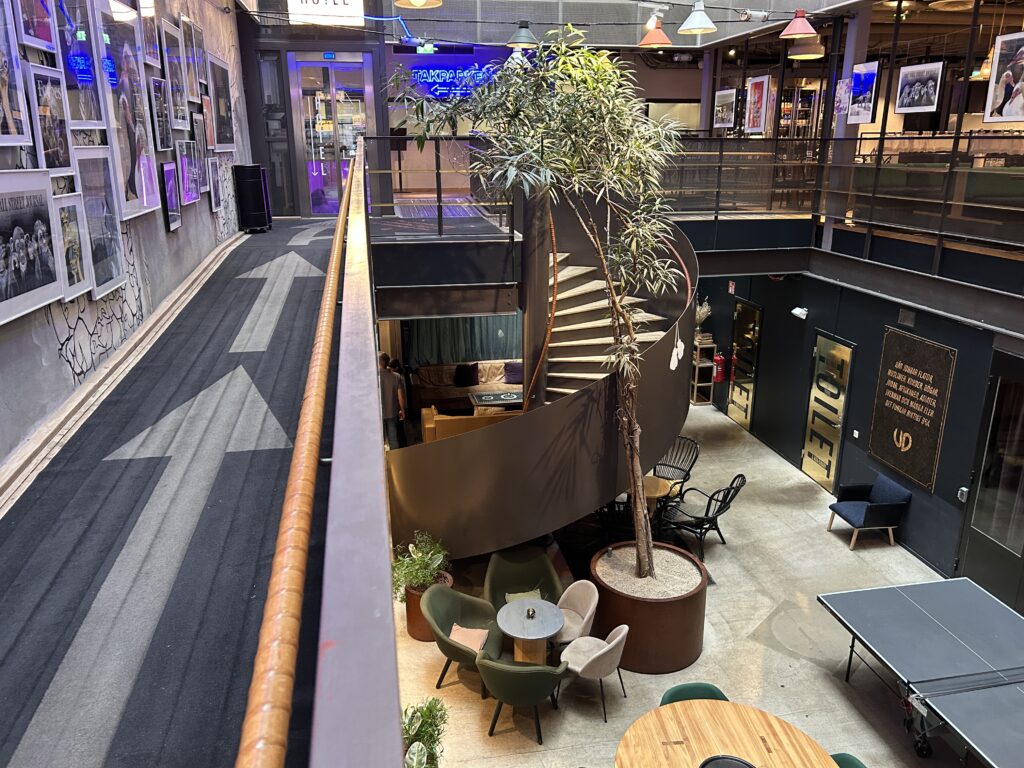
Urban Deli aggressively aims for a “super cool, hip, and youthful” vibe. Because I like to feel young and cool when I’m purchasing meat. It’s confusing. This theme, or lack thereof, extends throughout. There’s pop art liberally splashed on the walls, and the hallway carpeting leading to my room had color offsets that showed, and I can’t unsee this, people’s clothes coming off. As if guests can’t wait to make it to their room before starting the disrobing and getting it on. What the hell is in that deli meat.
Location, location, location!
All the rooms are underground. You’d think a hotel housed in a beautiful building in a beautiful city would make that visible. Instead, you descend to the basement to reach your room. They should have put the deli downstairs and kept the hotel rooms above street level.
To get to the hallway you “badge in”. Unfortunately, the reader and button were hidden behind a plant. A little hotel scavenger hunt before you even get to your room. This kind of thoughtless design is the core problem. All their design decisions make life harder for guests.
The room itself feels less like a hotel room and more like a bunker. In Europe the rooms are very small. Two feet of floor space on either side of the bed is fairly normal. But, there are no windows. Someone chose to put this hotel underground, so no windows. The lights are not very bright, adding to the oppressive feel. It has a “solitary confinement” aesthetic, where one contemplates their mistakes while awaiting sentencing.
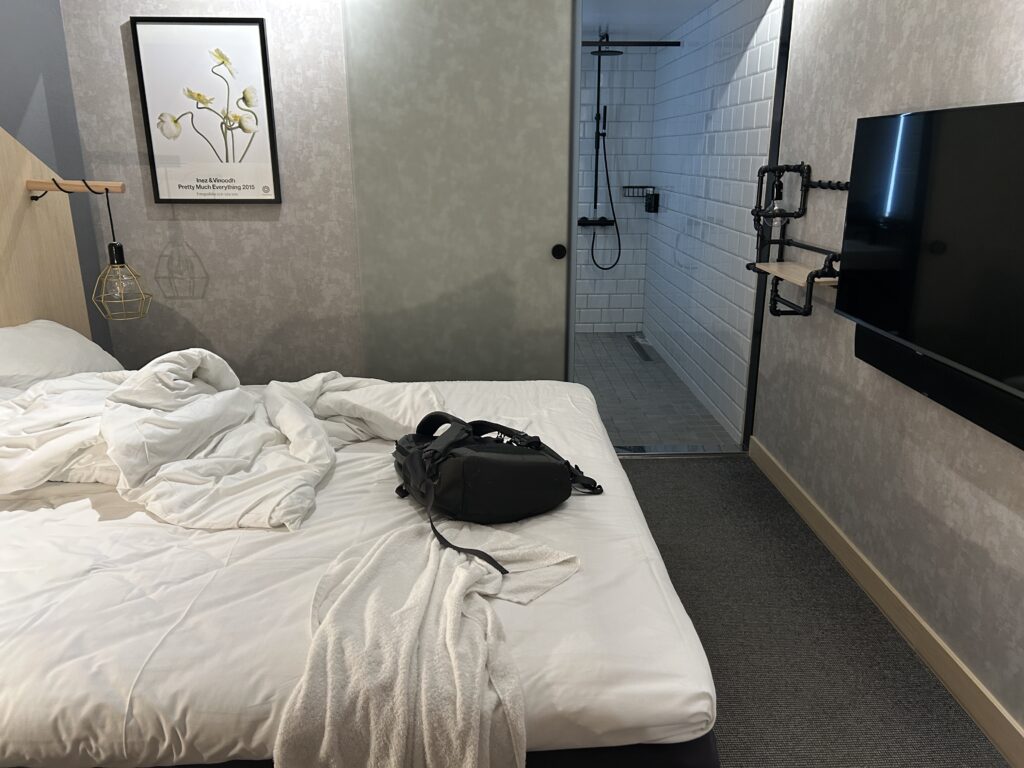
There was no desk. There was no chair. No wastebasket.There was nowhere to work. Instead, there were two small shelves surrounded by piping art (because why not, pipes are cool I guess). I did my work leaning over a 6-inch deep shelf, hoping my laptop wouldn’t fall off.
(I was told by a colleague that you weren’t supposed to stay in your room, the rooftop was the cool hangout spot. Unfortunately, it was closed.)
Of course the WiFi is unprotected. Urban Deli, where everyone can see your passwords.
The room lighting was a brain teaser. There were three banks of switches, two of which can only be reached by lying down on the bed. These three different banks have three different arrangements of switches, and most of the switches are unlabeled. Marilyn Vos Savant would have been stumped. And just to add another layer, the bathroom light controls weren’t actually in the bathroom. They were controlled from underneath the bed or by the door in the other room, literally the farthest point away from the bathroom. What the bleepty Mcbleep?
The Bathroom
Ah, the bathroom. With the main room small enough to high-five both walls while lying in bed, the bathroom was twice as big as it needs to be. It’s an interesting allocation of square footage. One imagines the design meeting: “Should we give them more space to sleep, or more space to wee wee?”
For those unfamiliar with European travel, partially enclosed shower areas with small glass panels are quite common. Urban Deli went one better by using curtains with barely enough room to turn around to really scratch that claustrophobic itch.
It is also common to have the shower water spill directly on the main bathroom floor. The floor was slightly tilted towards a drain. But the drainage couldn’t keep up with the water flow. Five minutes into my shower water had spread across half the floor and I had to cut it short.
They did provide a small towel, presumably intended as a bathmat. It was nicely folded on the shower rod, which seemed helpful until I realized I had to move it to close the curtain. But where to move it, there was nowhere to put the towel. Putting it on the now-flooding floor made no sense. There wasn’t a hook or any other logical spot. Let’s repeat that, there wasn’t a hook for towels small or large. A simple hook, a universal symbol of towel-holding, apparently didn’t make the cut of these architectural engineers.
Toilet Trouble
Let’s talk about the toilet. It looks normal enough at first glance, what could possibly be wrong?
Well, the flushing mechanism isn’t on the side, or anywhere easily reachable. It’s positioned directly behind the lid. This meant you literally can’t flush the toilet without putting the lid down first. Look we’ve already mastered toilet design. This is a solved problem. Urban Deli is sticking with chopsticks.
In Contrast
I moved to the Hotel Birger Jarl. It was the only time in my life I’ve ever left one hotel for another. Can you spot the differences?

Enough artificial light to see.
A pleasant view.
A comfortable work area, with a desk, chair, charging ports, wastebasket.
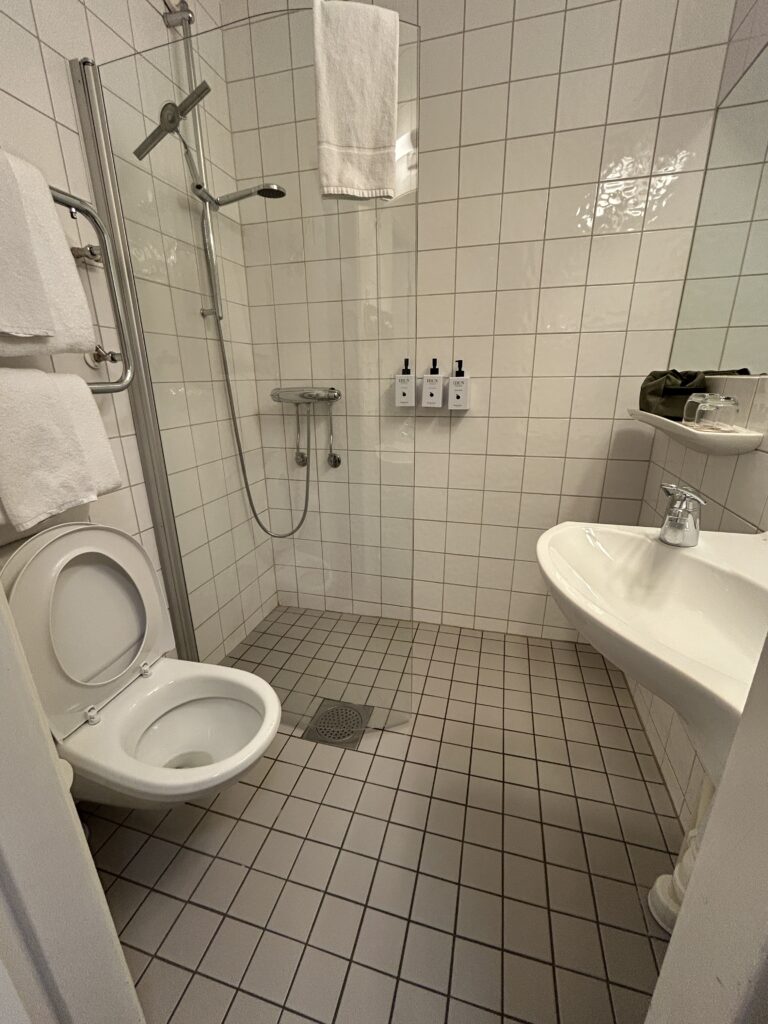
Is it really so hard to design a hotel? Urban Deli started over from first principles and failed.
Postscript: Colleagues took me to the Urban Deli rooftop later in the week. It was pretty awesome.
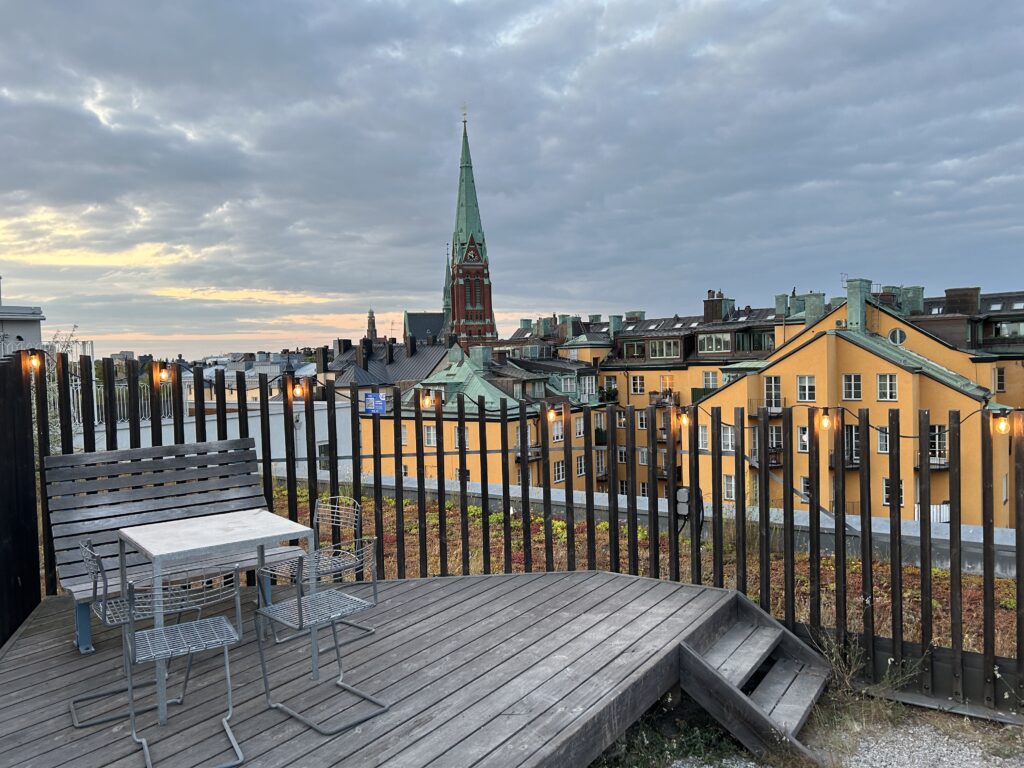
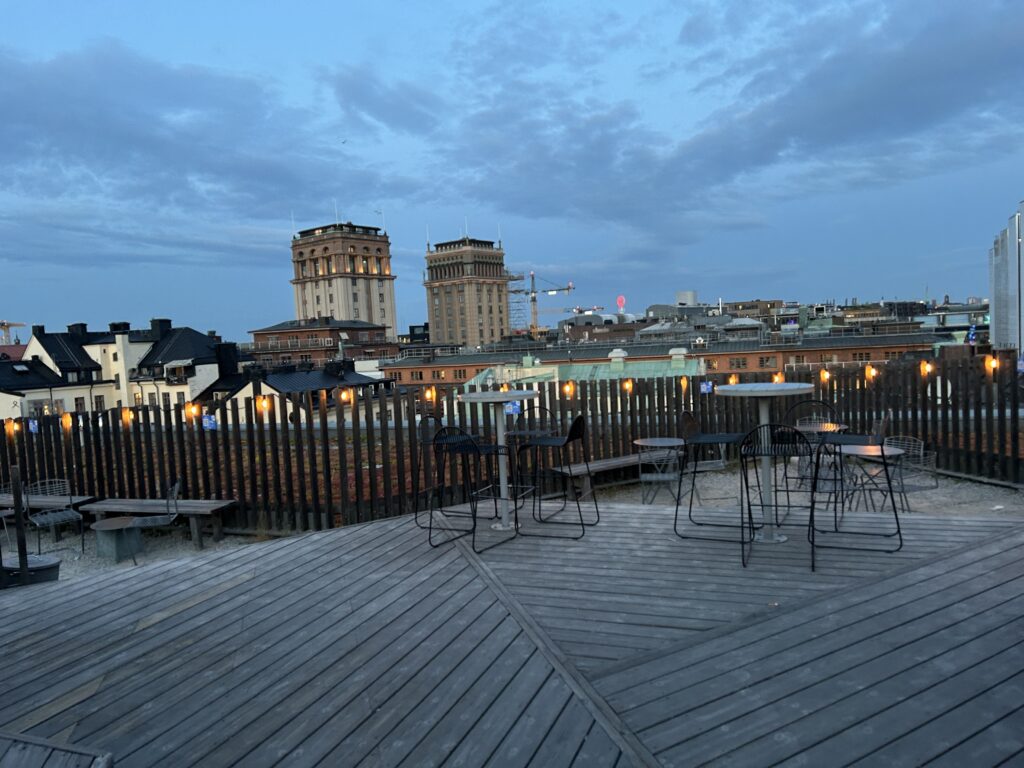
But not awesome enough. I look forward to never stepping foot in Urban Deli Hotel again.
